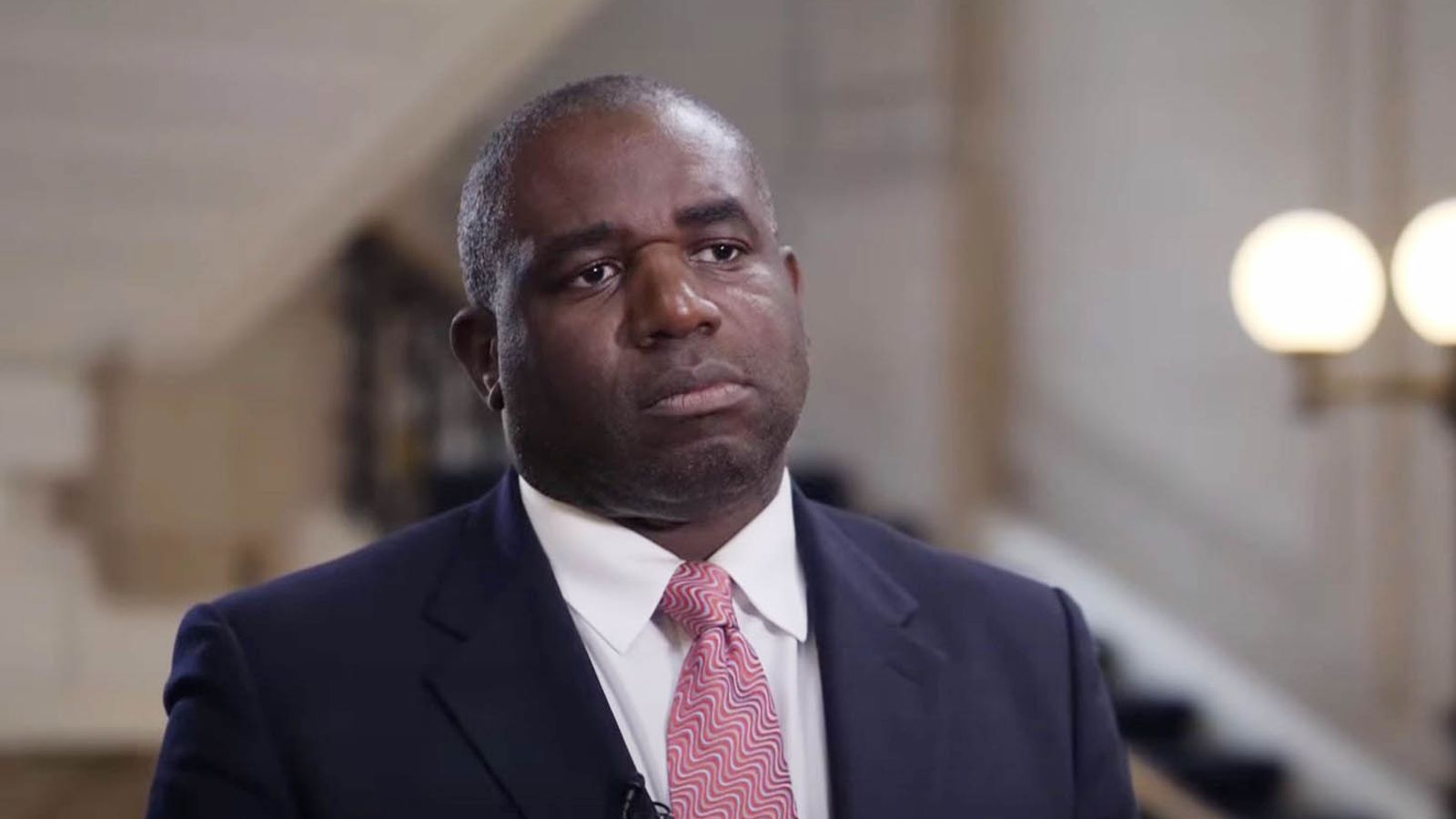Labour has called for an “immediate ceasefire” in Gaza for the first time, saying the situation there is “intolerable”.
The party leadership has been under pressure to back an immediate end to the fighting in the strip, with Sir Keir Starmer previously only calling for a “sustainable ceasefire” or “humanitarian pauses”.
Shadow foreign secretary David Lammy said the situation on the ground “has evolved” since the fighting broke out three months ago and it is now “intolerable”.
Politics Live: Labour calls for ‘immediate humanitarian ceasefire’ in Gaza
He told broadcasters: “We have set down a motion calling for an immediate humanitarian ceasefire. That’s because the situation now in Gaza is intolerable with a dramatic loss of life, with so many people facing starvation and we are very clear that the Rafah offensive that is being planned (by Israel) cannot go ahead.”
Mr Lammy said the position is in line with the UK’s Five Eyes partners including Australia, Canada and New Zealand which called for an immediate humanitarian ceasefire in Gaza last week.
However, while Labour has gone further in its language around the ceasefire, it is not clear how the position has materially changed.
Asked about the difference between this and Labour’s previous position – which was that a ceasefire must be “sustainable” with certain conditions attached – Mr Lammy said: “A humanitarian ceasefire that’s immediate requires both sides to lay down their arms.
“It requires those hostages to be returned… and we have also got to set out a roadmap for a political solution.
“So, the motion, yes of course, talks about an immediate humanitarian ceasefire, but the circumstances which we can get to that.”
It was put to him that Hamas, a proscribed terrorist organisation, is not likely to heed the call, yet Labour is obliging Israel to lay down its weapons when there are still hostages in captivity.
He repeated: “There cannot be an immediate ceasefire unless both sides lay down their arms. That is what the motion calls for.”
The motion is an amendment to the SNP’s motion calling for an immediate ceasefire, which is being debated in the Commons tomorrow.
Labour’s position is now much closer to the SNP’s, though Labour’s amendment has a greater emphasis on the role of Hamas – as well as Israel – in bringing about a lasting ceasefire.
SNP Westminster leader Stephen Flynn welcomed Labour’s “support for an immediate ceasefire”.
He said: “Through Parliamentary pressure we have inserted a backbone into the Labour Party.”
Ten Labour frontbenchers quit in order to vote for the SNP’s previous call for a ceasefire in November.
At the time, Labour had backed “humanitarian” pauses in the fighting.
Read More:
Scottish Labour unanimously backs immediate ceasefire
Wave of Labour frontbenchers resign over ceasefire in Gaza
Its position has evolved since then, with Sir Keir Starmer giving a speech to the Scottish Labour Party on Sunday in which he called for a “ceasefire that lasts” and said “the fighting must stop now”.
However, at the time, a Labour source stressed this wasn’t endorsing an immediate ceasefire and his comments were within the context of any ceasefire being lasting and sustainable and coming from both sides, alongside the release of hostages.
Hamas’s 7 October attack on Israel killed around 1,200 people, with around 250 taken hostage.
Militants still hold around 130 hostages, and a quarter of them are believed to be dead.
The war unleashed by the atrocity has killed at least 29,100 Palestinians, according to the Hamas-run Gaza health ministry.

